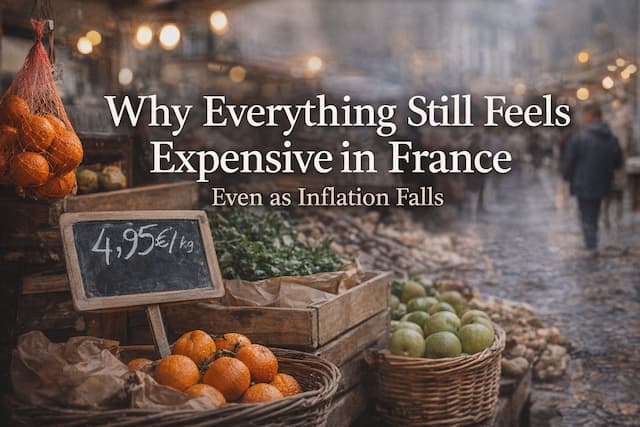Households Lost 440 Euros of Income Between 2008 and 2016

This decline in income is explained by social and fiscal reforms and concerns the middle class, according to a study by the French Observatory of Economic Conditions.
This is information that should fuel social discontent against the rise in taxes and the decline in purchasing power, in the midst of the movement of yellow vests .
French households lost an average of 440 euros between 2008 and 2016. This is what reveals a study of the French Observatory of Economic Conditions (OFCE), published in the latest “Social Portrait of France” of the INSEE Tuesday November 20th.
Disposable income is what is left over to households once taxes and contributions are deducted . Per household, it was 2016 lower by 1.2% than in 2008.
According to the OFCE, this loss of income concerns a large part of the middle class (67%). In addition to rising unemployment and demographic changes in society, the fall is largely explained by the social and fiscal reforms implemented during the five-year period of Nicolas Sarkozy and François Hollande.
Social inequalities decrease thanks to reforms …
However, these reforms did not affect everyone in the same way. The increase in social security contributions, combined with the increase in income taxes, caused the 5% of the richest households to lose up to 5,640 euros.
Conversely, the revaluations of social minima allowed the 5% of the poorest households to see their income increase by 450 euros . The next 5% even saw an increase of 890 euros in revenue .
“Between 2008 and 2016, tax and benefit reforms contributed to the reduction of inequalities.”
… but increase because of unemployment
Other factors contributed to this fall in incomes: the rise in unemployment (+2.7 points in eight years) and part-time work, the increase in the number of single-parent families and the aging of the population . The study also reveals that among workers, the share of workers and employees fell from 2008 to 2016, while those of middle and intermediate occupations increased.
“Unemployment and the rise in part-time employment have increased inequality.”
This decline in disposable income comes as they increased between 1999 and 2007 .
The calculation of the OFCE is based on INSEE’s Tax and Social Income Surveys (ERFS), which include several hundred information on each individual and accurate and reliable data on income from tax returns. Taxes and local subsidies (property tax for example) and solidarity tax on wealth are not included in the simulation.
More seniors and longer working
In its “Social Portrait of France”, published Tuesday, November 20, INSEE looks at the 13.1 million “65 years or more” that France has, or a resident out of five.
From 2.8 million in 1870, seniors could be 21.9 million by 2070, says the study. If their economic and social situation has greatly improved, with an average standard of living higher than that of working people, today’s seniors are working longer and longer.
Since the 2000s, the more than 65 years still in activity are more numerous. That is an employment rate of 3.3% in 2017 (against 1.1% in 2006) rising to 6.6% for the youngest of them, aged 65 to 69 years.
The statistician also notes that the standard of living of the over 65s has simply “stagnated”, when 25-64 years have seen their decline since 2008.
Enjoyed this? Get the week’s top France stories
One email every Sunday. Unsubscribe anytime.


